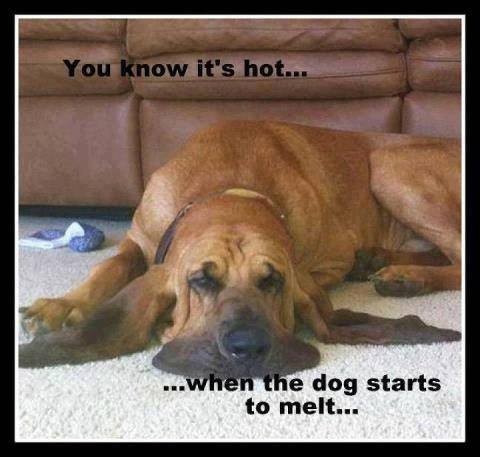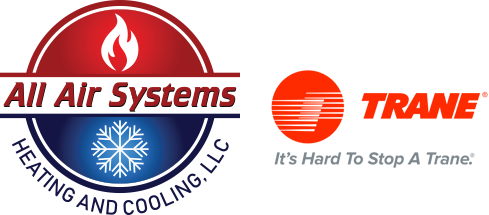
We’ve encountered numerous inquiries from homeowners expressing concern that their central air conditioning system isn’t keeping the house cool enough. This issue is not only common but also a significant discomfort during the hotter months. It raises a crucial question for many of us: why is the air conditioner not cooling enough, and what actions can we take to resolve this problem?
To address the challenge of an air conditioning system not cooling your house sufficiently, start by ensuring your AC unit is free from dust and debris, especially around the outdoor condenser unit. Check the air filters and replace them if they are clogged, as a clean filter is essential for maintaining airflow and keeping the air conditioner blowing cold air efficiently. Inspect the air ducts for any leaks that could be compromising the system’s efficiency.
Additionally, verify that the refrigerant levels are adequate since a refrigerant leak can significantly reduce cooling capacity. Be on the lookout for a frozen evaporator coil, which can obstruct the flow of cold air into your home. If these steps do not improve the situation, it may be time to consult with a professional HVAC technician to diagnose and rectify the underlying issues with your central air conditioning system.
Diagnosing Insufficient Cooling in Your Air Conditioning System
Initial Assessment
When facing an issue where your air conditioner is operational but fails to cool your home sufficiently, it’s crucial to approach the problem methodically. Avoid making arbitrary adjustments to the thermostat settings as this can exacerbate the issue rather than resolve it.
Begin by conducting a thorough assessment of your system’s current state. Verify the thermostat is set to cooling mode and note the temperature setting versus the actual room temperature. Inspect whether there is airflow from the registers and if the outdoor unit is actively expelling air. The temperature of the air exiting the registers should generally be warmer than indoor air, indicating the transfer of heat from inside to outside.
Identifying Common Causes
A variety of factors can contribute to your HVAC system not cooling enough. Two prevalent issues are the accumulation of dirt on the coils, which impedes the system’s ability to expel heat efficiently, and clogged filters restricting airflow, thus diminishing the overall effectiveness of your air conditioning unit.
Professional Maintenance Recommendations
Should your evaluation indicate that maintenance might be the solution, we strongly advise enlisting the services of a qualified HVAC professional. Handling high voltage electricity, high-pressure refrigerants, and intricate system components requires expertise to avoid damage or further complications.
Engaging an HVAC expert not only ensures a comprehensive resolution to the cooling inefficiency but is also cost-effective in the long run. An optimally functioning air conditioning system is crucial for both comfort and economic efficiency, reducing unnecessary energy consumption and prolonging the lifespan of the unit.
At All Air Systems, we specialize in both the installation and service of air conditioning systems across New Jersey. We understand the importance of a well-maintained HVAC system for ensuring comfortable living spaces. If your air conditioning isn’t keeping your house cool, don’t settle. Contact us for a thorough inspection and efficient resolution tailored to your specific needs.
Essential Self-Checks for Improving Air Conditioner Efficiency
Inspect Your Furnace Air Filter
One of the initial steps to address an underperforming air conditioner is to examine the furnace air filter. A filter clogged with dust and debris significantly impedes airflow, diminishing the cooling capacity of your system. This restriction can be severe enough to affect the unit’s ability to maintain comfortable temperatures, particularly during peak heat periods. Fortunately, replacing a dirty air filter is a straightforward task that most homeowners can accomplish independently, potentially restoring optimal function to the air conditioning system.
Assess the Outdoor Unit’s Surroundings
The condition and environment of the outdoor unit can also play a crucial role in your air conditioner’s performance. Vegetation growth like bushes or foliage crowding the unit can obstruct airflow, limiting the system’s ability to expel warm air effectively. Ensuring a clearance of at least 6 to 8 feet above and around the unit can significantly enhance airflow and operational efficiency.
Additionally, inspect the condenser coil for any accumulation of dirt, dust, or debris, which can further restrict airflow and heat dissipation. The presence of such contaminants on the coil surfaces is a common issue that impedes cooling performance.
Professional Assistance for Condensing Coil Maintenance
If upon inspection, you discover that the outdoor condensing coil is clogged, engaging a professional technician is strongly advised. Although cleaning the unit might seem manageable, improper handling can cause damage to sensitive components, potentially leading to more significant issues. Professionals possess the requisite skills and tools to safely and effectively clean the system, ensuring it operates at peak efficiency without risk of damage.
Addressing these two areas can markedly improve your air conditioner’s cooling efficiency, enhancing comfort levels within your home while potentially extending the life span of the unit.
Strategies to Enhance Cooling Efficiency in Your Home
Addressing Basement Humidity and Condensation
One often overlooked aspect that can affect your home’s cooling efficiency, particularly if you notice your air conditioner not cooling enough, involves managing humidity levels in the basement. Excessive moisture can contribute to your system’s underperformance. A common issue is ductwork sweating or condensation dripping in the basement, which is a clear indication of abnormal humidity levels. An inadvertently opened basement window can significantly increase humidity, allowing external warm, moist air to infiltrate this area. Ensuring that all basement windows are securely closed is a straightforward yet effective measure to control humidity and enhance your air conditioning system’s effectiveness.
Optimizing Air flow for Improved Cool Air
The core functionality of air conditioners relies on the efficient circulation of air. The placement and condition of the air filter are critical in this process, as it facilitates the removal of hot air from your home. A clogged or improperly installed filter can restrict airflow, trapping hot air inside the unit and thereby diminishing its cooling efficiency. Regularly checking and replacing the air filter as needed can prevent this issue, ensuring that your system operates optimally and cools your home more effectively.
Enhancing Upper Story Insulation
The thermal efficiency of upper stories plays a significant role in overall home cooling. Inefficient insulation or open storm windows can lead to heat gain, challenging your air conditioning system’s capacity to cool these spaces adequately. Closing storm windows in the upper stories acts as an additional layer of insulation, helping to maintain cooler indoor temperatures by preventing heat entry and retaining conditioned air. This simple action can significantly contribute to the effectiveness of your air conditioning system, especially during peak summer months.
Implementing these measures can markedly improve your home’s cooling performance without necessarily resorting to professional maintenance. By addressing humidity control, optimizing airflow, and enhancing insulation, you can support your air conditioning system in achieving better cooling outcomes, ensuring a more comfortable indoor environment.
